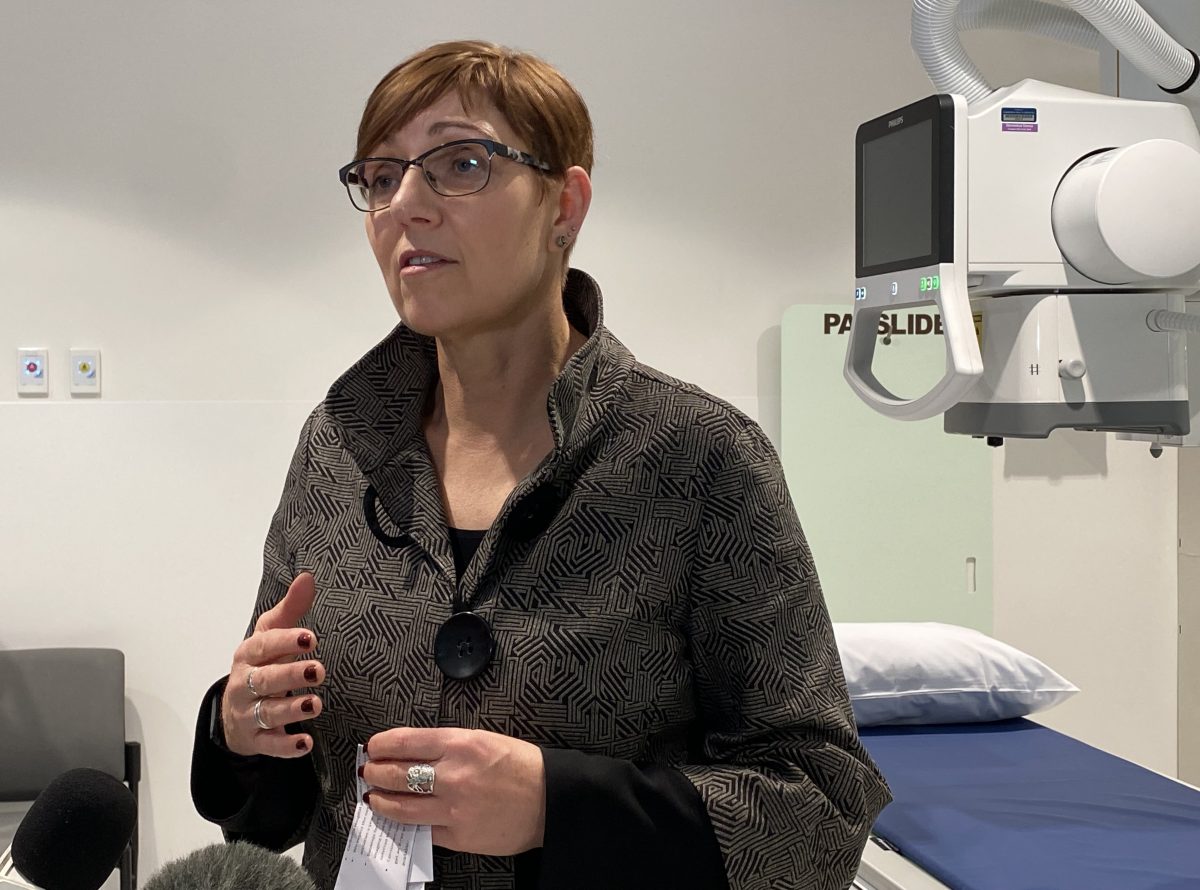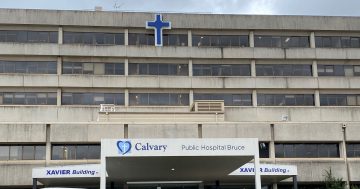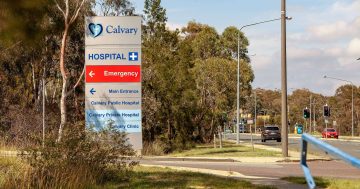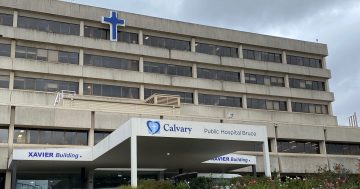
Health Minister Rachel Stephen-Smith said the formal transition process of Calvary Public Hospital Bruce’s assets and staff to the government was expected to be completed by 3 July. Photo: Claire Fenwicke.
Legislation to allow the forcible acquisition of Calvary Public Hospital Bruce has succeeded, allowing for a transition of services to the ACT Government to begin once notified.
Health Minister Rachel Stephen-Smith outlined in the Assembly on Wednesday (31 May) that the Health Infrastructure Enabling Bill had become necessary due to issues with the past dealings with Calvary Health Care.
“In 2009, the Little Company of Mary agreed to transfer the entirety of the Block to the ACT Government … of course, we know the whole deal fell through when the Little Company of Mary withdrew its support in early 2010,” she said.
“And it did so, at least in part, because it could not get agreement from the Vatican to transfer ownership to the ACT Government.”
Ms Stephen-Smith argued the new Calvary Network Agreement had been agreed to in late 2011 to enable a “better networked public hospital system” with more engagement and accountability.
However, the government felt the agreement had continued to be a “constraint on collaboration” and on progressing culture reform.
Ms Stephen-Smith also explained Calvary had been consulting with staff about its own master plan for services, and so the government felt they needed to make the “difficult decision” to undertake a forcible acquisition.
“We need to get on with the planning and construction of a new hospital, and we are certain that the decision we have made – hard though it is, and I absolutely recognise that it has come as a shock to many Calvary staff – is the right decision, made in the best interests of Canberrans,” she said.
“This bill provides certainty over the land that will enable us to get on with developing the new northside hospital in partnership with those who will use it and those who will work in it.
“As well as acquiring the land, this bill enables the transition of operations of the existing Calvary Public Hospital Bruce to Canberra Health Services – bringing together the ACT’s public hospitals and community health services into a single network.”
In the debate throughout the day, the issue of how staff found out about the acquisition earlier this month was repeatedly raised.
Ms Stephen-Smith said while they hadn’t been allowed to consult with staff or unions, they had been consulting with Calvary Health Care “for months”.
“I don’t think this was [a] secret from Calvary at all. Calvary Health Care had been advised in April last year that if we were unable to reach an agreement that we would consider introducing legislation to compulsorily acquire the land that we need to invest a billion dollars to build a new northside hospital for the people of the ACT,” she said.
“We want that hospital to be owned by Canberrans, not by some private company, and we were very clear with Calvary that that was absolutely our bottom line and we were not able to reach agreement on how that was going to occur, despite months and months of formal negotiations.”
The formal transition period is set to begin once the legislation has been officially notified, which is expected to occur either tomorrow (1 June) or Friday morning.
Ms Stephen-Smith said some tweaks had been made to the legislation, which would allow all entitlements, including flex time, to be transferred over once staff accepted their formal offer from Canberra Health Services.
“[Another change is] when staff accept the offer of employment at Canberra Health Services, the regulation will operate to automatically terminate their employment with Calvary Health Care ACT on the acquisition day, so they won’t have to take that extra step of resigning,” she said.
The Canberra Liberals voted against the Health Infrastructure Enabling Bill but were defeated.
Acting leader Jeremy Hanson said he understood Calvary was going to wait until the legislation was notified to file their court action.
“I’ve heard from a number of very senior lawyers in the ACT who have looked at the legislation … some have suggested High Court, some have suggested Federal Court action, and there are differing arguments of why that would be the case,” he said.
“Calvary has chosen to go to the High Court and is going to be arguing, it would seem … on ‘just terms’.
“The way I understand that, just terms is more than just the money. You can’t just pay people out with the money, it’s got to be a just result, and that will now be a matter, it will appear, for the High Court.”
If the court action fails, and the acquisition is cemented before the 2024 election, Mr Hanson said his party wouldn’t undo the acquisition if they took power.
“If it’s done, it’s done. You cannot unscramble the egg,” he said.
“To be frank, I think Calvary would be pretty reticent to sign any contract with any ACT Government going forward. Let’s face it, the current agreement they’ve signed with the ACT Government in good faith is not worth the paper it is written on.”
A Calvary Health Care spokesperson said the organisation was “deeply disappointed” the legislation had passed.
“As previously stated, Calvary intends to challenge the validity of the legislation,” they said.
“Calvary anticipates commencing such proceedings in the very near future.”





















